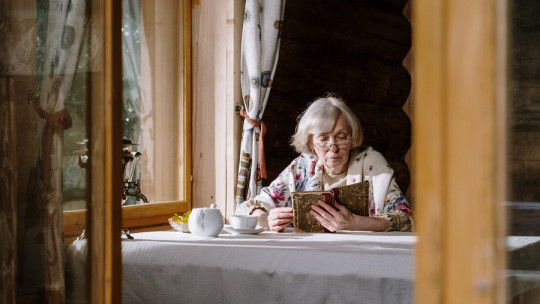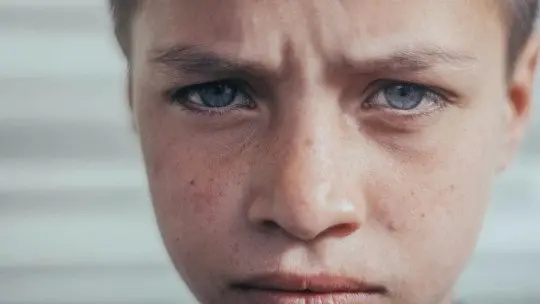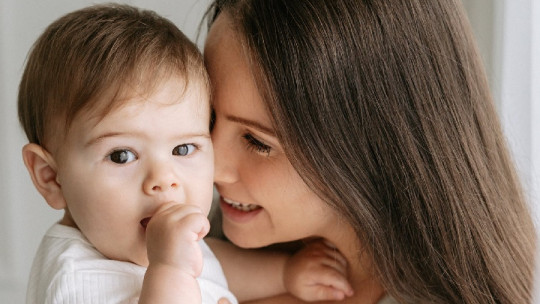
Love is essential to understanding human society. People tend to group together at different levels, since we are social and political animals by nature. No matter how much a human being rejects contact or intimacy, it is very difficult (or impossible) to never feel affection for another entity of our same species, whether in a romantic, passionate, fraternal way or all the variants that you can think of.
In its early stages, falling in love has a very important physiological burden. When we feel physical and emotional attraction to a person, the brain releases phenylethylamine, a neurotransmitter that promotes the secretion of dopamine and norepinephrine. These hormones have a similar effect to that of amphetamines and other drugs and, therefore, make us experience a state of natural euphoria when we are with our partner.
Over time, this powerful physiological infatuation gives rise to a much more rational and balanced feeling, characterized by appreciation of the other person, the bond over time and gratitude for what has been built together over the years. In any case, it is common that in these stages the spark is lost, misunderstandings arise and divorce is considered. At this point, it is necessary to know the keys to managing shared custody if coexistence stops being positive for both parties.
What is joint custody?
First of all, we want to make a basic idea clear: divorce in itself is not bad. For example, in Mexico City 41 out of every 100 couples divorce: this is not an indication that things are going wrong or disastrous news, since it simply exemplifies that individual freedoms and the capacity for self-determination are increasingly in force in the society. actual society.
Shared custody is the legal situation through which both parents exercise custody of their minor children after separation, in a situation of equality in terms of conditions, rights and duties over the offspring. The final objective of shared custody is the understanding between both parties, in order to equitably distribute the material and emotional needs of the children between the parents.
This modality is very different from others considered during a divorce process. For example, in Split custody, one parent takes primary care of part of the offspring, while the other takes primary care of the remaining children. This is not the most recommended, since it is inevitable that the infant develops more affection (or conflicting emotions) for the person with whom she lives on a daily basis.
On the other hand, the Birds nest custody modality explores the idea that the child does not leave the same home at any time, but that the parents come to the home. equitably. As an advantage over other options, this gives the child stability and a feeling of belonging to a home.
In typical shared custody, it is the child who must settle in the parental homes, ideally at fixed time intervals that adapt to parental needs and family dynamics. Below, we leave you a few keys that you should keep in mind to address this logistical and emotional challenge as best as possible.
1. Choose a time with your ex-partner
The first step after choosing a divorce and custody model is always to get organized. There are various adjustments to the routine that can be put into practice to distribute parental exercise time, but the most common are the following:
As confusing as all this may sound, it should be noted that there are free access calculators on the Internet (like this one: https://justice.oregon.gov/calculator/parenting_time/) that will allow parents to obtain the time that best suits them and At the same time, equitably distribute responsibilities towards the children. Don’t despair and ask for help if you feel overwhelmed by the situation.

2. This is not the time for fights
Unless your ex-partner is engaging in illegality or carrying out acts that violate your freedom or that of your children, you must understand that everyone has their own way of conceiving parenthood and that all parents are free to exercise their values as they consider. , as long as they don’t step on the rest.
Some sources consider that coercing children to take a position in favor of one of the parents is an act of psychological abuse Manipulation entails a violation of the human right of freedom of conscience, since directly or indirectly the infant is being blamed for feeling appreciation for the other party. As you will understand, this is unacceptable, much less at a time of psychological vulnerability (such as the divorce process).
3. The protagonists of custody are not the parents
Divorce causes “tunnel vision,” a phenomenon that affects the ability to perceive stimuli from the environment, since the emotion is so intense and unpleasant for parents that they may forget the perception and processes of those around them. It is normal to a certain extent, since we all have the right to feel vulnerable and selfish when something affects us deeply. In any case, grief must give way to rationality over time.
It may sound a bit belligerent, but let’s be clear: Divorce is about the parents, but custody is about the children In this scenario, it is necessary to leave pain and personal ego behind and work towards a common good for the offspring. Once it is decided to take a different path with the ex-partner, the protagonists for a time become the children, at least until the situation stabilizes.
4. It never hurts to seek psychological help
As a closing to this theme, it should be noted that a father does not become a superhuman or a reference as soon as his son steps on earth. It has been instilled in us that father and mother figures (especially the latter) are perfect, tireless, they do not make mistakes and they give their lives for their descendants. This is not the case in any case: we are human beings and, as such, failed and sometimes selfish by nature.
For this reason, it never hurts to seek psychological help if the process becomes complicated and one of the parents is overwhelmed by the situation. Sometimes, an external, professional and objective vision is necessary to guide each party separately towards achieving a common good: that the children can continue to be happy despite the changes.








